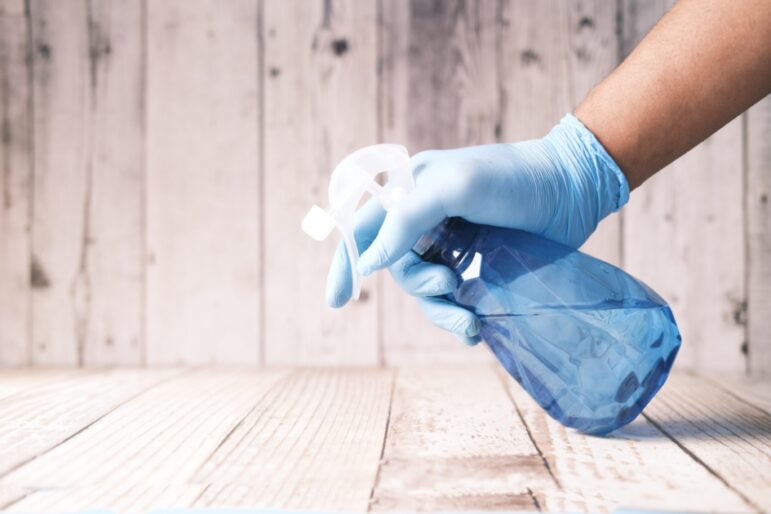For commercial cleaners, sustainability is the new green cleaning. Many facility managers remember when the professional cleaning industry first stopped using traditional cleaning solutions, products, and cleaning procedures and changed to using more environmentally friendly ones. The goal then, as it is today, was to reduce the industry’s impact on cleaners, building users, tenants, and the environment.
The evolution to green cleaning and using more environmentally friendly and responsible cleaning products was customer-driven. However, today something new is evolving in the professional cleaning industry, a focus on sustainability. This applies to the manufacturers of cleaning solutions and products, the distributors who market them, and the cleaning contractors who use these products daily.
Green vs. sustainability
Before going further, let’s clarify a couple of terms. Many people use the terms ‘green’ and ‘sustainability’ interchangeably but there are important differences to note. The term ‘green’ refers specifically to products. For instance, a green cleaning solution is healthier to use and more protective of the environment.
Sustainability, on the other hand, focuses more on the operation end of a business. This term has been around since the 1980s when it was first introduced, referring to preserving natural resources for future generations.
Today, sustainability is focused on three things:
- Environmental protection, meaning the responsible use of natural resources, reducing carbon emissions, and protecting land and waterways.
- Economic stability by encouraging business growth with legal and fair business practices.
- Social responsibility, meaning that workers are paid fairly with essential benefits, protecting human rights, and investing in local communities to make them more resilient.
RELATED: Evolving from green cleaning to sustainability
The whys behind the movement
Why is the professional cleaning industry as a whole becoming more sustainability-focused? Here is a list of some of the reasons why:
- It can reduce costs. Distributors and large contract cleaning companies, for example, are saving thousands of dollars by purchasing more fuel-efficient vehicles. Hybrid trucks average just over 10 kilometers per liter while traditional trucks still average eight kilometers per liter, and fully electric vehicles do not use any fuel at all. Investing in more sustainable vehicles is a way for companies to reduce their transportation costs over the long term.
- It can boost employee retention. Contractors practicing sustainability often pay their staff more and provide more benefits. These practices typically lead to enhanced employee retention, resulting in a dedicated team of cleaners who will get to know your building thoroughly. Turnover in the professional cleaning industry can be as high as 300 per cent, which means that three times per year the contractor may be looking to replace parts of their team. Avoiding the time and money it takes to hire is a big motivator for some companies to revamp their practices.
- It helps companies stand out. For years, cleaning contractors and many of the cleaning solutions used in professional cleaning have been viewed as a commodity, meaning they are all about the same. Segments of the industry are promoting their sustainability practices because it helps them stand out and make a name for themselves in the industry.
- It can cut down on your supplies. Many sustainably focused cleaning contractors use fewer cleaning solutions. This results in fewer packaging materials and greenhouse gases to deliver those products, while saving them money. It also makes good common sense to multitask – if one product is used for many cleaning tasks, the job becomes more efficient.
- Timing is everything. As of May 2021, the World Economic Forum reported that a global “eco-awakening” has been taking place. Consumers are driving sustainability and believe brands, including those in the professional cleaning industry, have a responsibility to protect natural resources, people and communities, and the environment.
“Today, consumers worldwide want to live more sustainably,” the Forum reports. “Many expect businesses to play a positive role in society and feel that when it comes to driving positive change, brands bear as much responsibility as governments.”
Sustainability and the future of the cleaning industry
As the professional industry becomes more sustainability-focused, we can expect to see changes in the types of cleaning solutions used to clean and maintain facilities. Green and environmentally friendly products are here to stay, but there will be much greater emphasis on what ingredients are used to make the products.
One example of this is the increased use of citrus-based cleaning solutions, now available from different manufacturers. Made from limes, lemons, and other citrus fruits, at least one citrus-based disinfectant is now EPA-registered and proven effective at killing a broad spectrum of germs and bacteria. The same is true of citrus-based sanitizers.
Something else we can expect to see is greater transparency from cleaning contractors. Facility managers should know whether the contractor they hire has a high turnover rate, if the workers are adequately trained, paid fairly with benefits, and if the company uses sustainable products and practices.
In the future, sustainability-focused cleaning contractors can serve as a resource for facility managers. As they are often as familiar with your facility as you are, they can suggest ways to make your facility more sustainable, lowering your operating costs, consumption, and waste.
Lee Chen is a professional cleaning industry veteran and President and COO of ProNatural Brands, LLC, manufacturers of natural, sustainable, high-performing citrus-based cleaning solutions.









